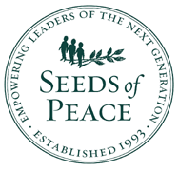
Jawad Siyam is a community organizer in the East Jerusalem neighborhood of Silwan. Silwan has become a focus of the Israeli settlement debate since the 1980s at which point Israelis began to settle in Palestinian homes in order to re-establish the historic Jewish presence in the area, known in Hebrew as Shiloah. Siyam heads the Madaa Silwan Community Center and works at the Wadi Hilweh Information Center. The Community Center was formed in 2007 to bolster the cohesion of the community in response to the lack of civil services provided by the Jerusalem Municipality to the neighborhood. The Information Center was formed in 2009 in order to articulate the Palestinian narrative of the Silwan neighborhood in light of the Ir David (City of David) archeological site which serves as a large tourist attraction and stresses the historic Jewish identity of the area. Siyam poignantly asked how American diplomatic visits can tour the City of David, and at the same time voice support for an end to East Jerusalem settlement? His mission is to challenge established narratives and present the Palestinian history of the neighborhood.
















